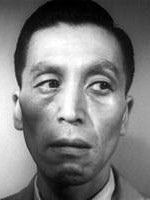To Love Again is a film of genre Drama directed by Kon Ichikawa with Renaud Verley
To Love Again (1971)
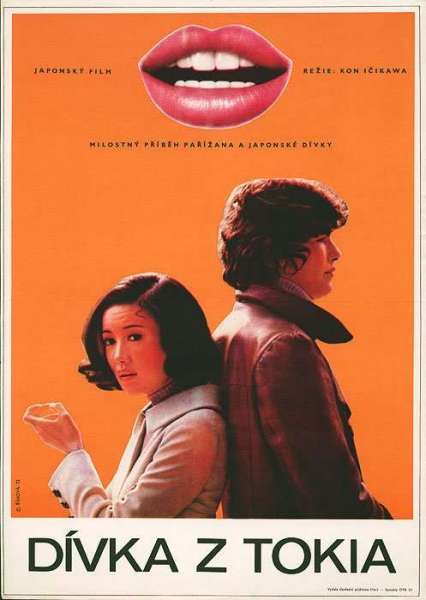
If you like this film, let us know!
To Love Again (愛ふたたび, Ai futatabi) is a 1971 Japanese drama film directed by Kon Ichikawa. It was entered into the 21st Berlin International Film Festival.
Actors
Comments
Leave comment :
Suggestions of similar film to To Love Again
There are 41 films with the same actors, 32 films with the same director, 61811 with the same cinematographic genres, to have finally 70 suggestions of similar films.If you liked To Love Again, you will probably like those similar films :

47 Ronin (1994)
, 2h12Directed by Kon Ichikawa
Genres Drama, Action
Themes Seafaring films, Sports films, Transport films, Martial arts films, Samurai films
Actors Ken Takakura, Kiichi Nakai, Rie Miyazawa, Kōji Ishizaka, Kōichi Iwaki, Ruriko Asaoka
Rating64%





The story of the Forty-seven Ronin has been depicted in many ways, with each version focusing the emphasis on different parts of the story—the rivalry of Lords Asano and Kira, Asano's assault on Kira, Asano's sentence of seppuku immediately afterward, and the revenge attack 21 months later against Kira by the Forty-seven Loyal Retainers. Oishi Kuranosuke, Asano's chamberlain and the head of the 47 samurai, is often the primary character, and his actions are often held up as the epitome of bushido, the honor code of the samurai.
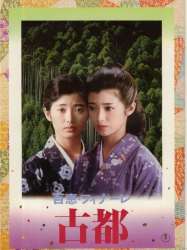
Koto: The Ancient City (1980)
Directed by Kon Ichikawa, Noboru Nakamura
Genres Drama
Actors Momoe Yamaguchi, Shima Iwashita, Tomokazu Miura, Keiko Kishi, Seiji Miyaguchi, Masaya Oki
Rating66%





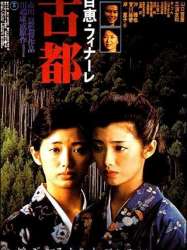
Twin Sisters of Kyoto (1963)
, 1h47Directed by Kon Ichikawa, Noboru Nakamura
Origin Japon
Genres Drama
Actors Shima Iwashita, Momoe Yamaguchi, Seiji Miyaguchi, Hiroyuki Nagato, Eijirō Tōno, Chieko Naniwa
Rating70%





Set in Kyoto, 20-year-old Cheiko (Shima Iwashita) works in her parents' wholesale silk goods store. She was brought up to think her parents stole her as a baby in a fit of passionate desire and becomes profoundly disturbed to learn (after a chance encounter with a girl who turns out to be her sister) that her real parents had abandoned her. Her identity crisis is exacerbated by her need to choose between carrying on her adoptive father's kimono-designing business, now in decay, and leaving home to marry.

Ten Dark Women (1961)
, 1h45Directed by Kon Ichikawa
Genres Drama, Comedy
Actors Jūzō Itami, Fujiko Yamamoto, Eiji Funakoshi, Kyōko Kishida, Keiko Kishi, Tamao Nakamura
Rating68%





A married television executive has many mistresses. Nine of the mistresses and his wife band together and plan to kill him. His wife tells him they are planning to kill him and they fake his death at a meeting of all ten women using a pistol loaded with blanks and a tomato.

Her Brother (1960)
, 1h38Directed by Kon Ichikawa
Origin Japon
Genres Drama
Actors Keiko Kishi, Kinuyo Tanaka, Hiroshi Kawaguchi, Masayuki Mori, Kyōko Kishida, Jun Hamamura
Rating68%





Hekiro et Gen sont frère et sœur, ils s'entendent bien malgré un foyer peu chaleureux. Le père, un écrivain qui connait un certain succès, passe ses journées enfermé dans son bureau à travailler ses manuscrits. La belle-mère, une bigote chrétienne, est atteinte d'une forme sévère de rhumatismes qui la fait souffrir du pied et de la main gauche. Gen est une jeune fille au fort tempérament et responsable, elle supplée sa belle-mère handicapée dans les tâches quotidiennes et s'occupe avec affection de son frère Hekiro. Ce dernier, ne trouve pas sa place dans ce foyer et fait les 400 coups, entre bagarres au lycée, vol, dettes qu'il contracte dans une salle de billard ou chez un loueur de hors-bord. Cependant, malgré la confiance entre frère et sœur, certains problèmes surgissent. Quand Hekiro est atteint d'une tuberculose incurable, il s'attriste de voir sa sœur envisager de se marier. Le jour de sa mort, elle tâche de supporter courageusement le chagrin et la fatigue.
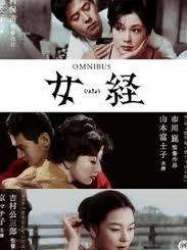
A Woman's Testament (1960)
, 1h40Directed by Kon Ichikawa, Yasuzō Masumura, Kōzaburō Yoshimura
Genres Drama
Actors Ayako Wakao, Hiroshi Kawaguchi, Hitomi Nozoe, Sachiko Hidari, Fujiko Yamamoto, Eiji Funakoshi
Rating66%





This is a series of three stories revolving around women. The first story is about a young woman who works in a Tokyo nightclub. She has what seems like a good plan for a strong financial future; she is investing in a company on the one hand, and on the other, taking action to snare the son of the company's owner in marriage. In the second story, a young woman is employed by a real estate agent in order to convince male clients to invest in worthless property, usually by bathing with them. The last story is about a widowed geisha who has no financial worries. But when she falls in love with a forger, she opts to wait for him after he is sent to prison. This causes trouble for her in family and society, but she ignores them despite the pressure.
 , 1h1
, 1h1Directed by Kon Ichikawa
Genres Drama
Themes Seafaring films, Transport films
Actors Susumu Fujita, Hideko Takamine, Haruo Tanaka, Kazuo Hasegawa, Yatarō Kurokawa, Isuzu Yamada
Rating27%






An Actor's Revenge (1963)
, 1h53Directed by Kon Ichikawa
Origin Japon
Genres Drama
Themes Films about television
Actors Kazuo Hasegawa, Ayako Wakao, Fujiko Yamamoto, Ichikawa Raizō VIII, Shintarō Katsu, Eiji Funakoshi
Rating72%





Three men, Sansai Dobe (Ganjirō Nakamura), Kawaguchiya (Saburō Date) and Hiromiya (Eijirō Yanagi) are responsible for the deaths of seven-year-old Yukitarō’s mother and father. Yukitarō is adopted and brought up by Kikunojō Nakamura (Chūsha Ichikawa), the actor-manager of an Osaka kabuki troupe. The adult Yukitarō (Kazuo Hasegawa) becomes an onnagata, a male actor who plays female roles. He takes the stage name Yukinojō. Like many of the great onnagata, particularly of the seventeenth and eighteenth centuries, he wears women’s clothes and uses the language and mannerisms of a woman offstage as well as on. Many years later, the troupe pays a visit to Edo, where the three men responsible for his parents’ deaths now live. Yukinojō brings about their deaths by means of various stratagems, then, apparently overcome by what he has done, retires from the stage and disappears, no-one knows where. The events of the film are coolly observed and sardonically commented on by the Robin-Hood-like thief Yamitarō, also played by Hasegawa.
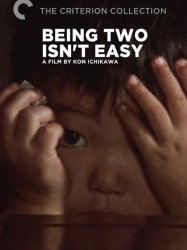
Being Two Isn't Easy (1962)
, 1h28Directed by Kon Ichikawa
Origin Japon
Genres Drama, Comedy, Comedy-drama
Actors Eiji Funakoshi, Fujiko Yamamoto, Kumeko Urabe, Misako Watanabe, Kyōko Kishida, Jun Hamamura
Rating67%





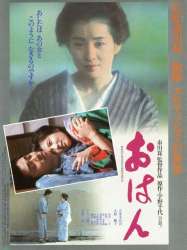
Ohan (1984)
Directed by Kon Ichikawa
Genres Drama
Actors Sayuri Yoshinaga, Kōji Ishizaka, Reiko Ōhara, Jun Hamamura
Rating69%





 Connection
Connection


